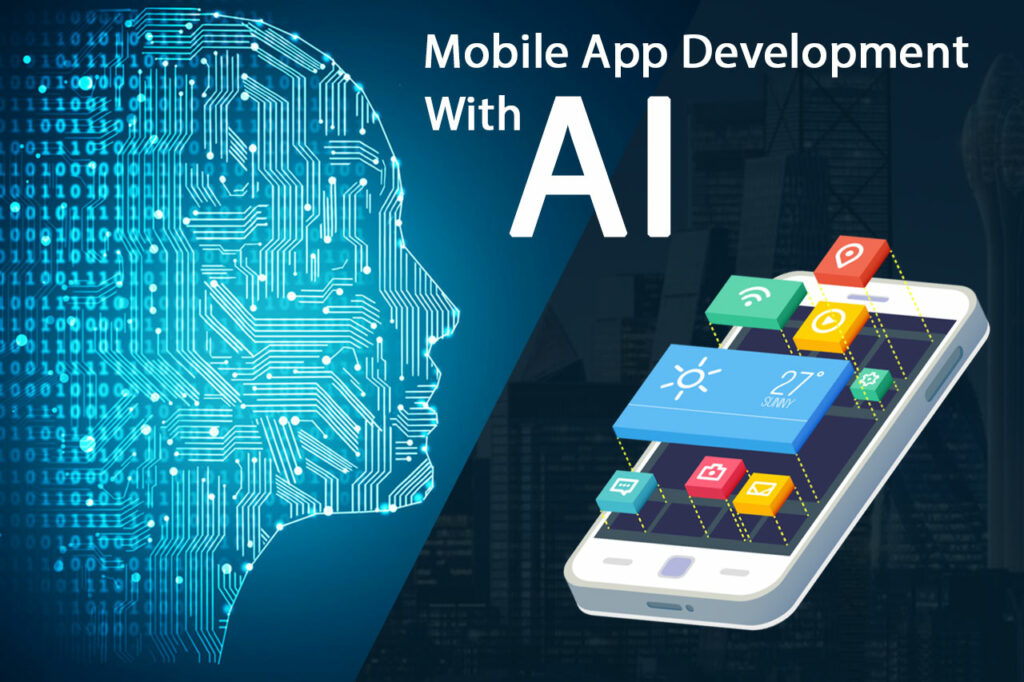With the increasing pace of technology, mobile app development is crucial in our lives nowadays. Mobile applications revolutionized how people order food and hale rides, manage money, and stay in touch with their friends.
The increased complexity of mobile app development has driven firms to embrace AI to change how they build and maintain apps. If you want to integrate AI into your mobile app development and are not sure where to start, you need to get in touch with the top app development consulting company to get complete guidance for your project. Space-O Technologies, IBM, Google, Accenture, and Wipro are some of the top companies that provide app consulting services.
But, if you want guidance tailored specifically to integrating AI into your mobile apps, it is recommended to partner with Space-O Technologies. Their team stays on top of the latest advancements in AI and machine learning to deliver innovative solutions that boost efficiency and user engagement.
Let’s understand, how AI is revolutionizing mobile app development with AI.
The Changing World of Mobile App Development
Mobile app development has transformed significantly since the first smartphones were introduced. Back then, making apps for phones was relatively straightforward. However, with the growth of platforms like iOS or Android, development is harder. The development of useful apps should be easy to use with multiple features for data safety and compatibility in all devices and screens.
This suggests that app developers have it more difficult than in the past. The old ways of making apps don’t always work anymore. They have to adapt to these new demands in mobile technology.
7 Benefits of AI in Mobile App Development
AI technology offers numerous benefits to businesses, developers, and end-users. Here are the benefits of AI consulting services in mobile app development.
1. Real-time Data Insights
- AI allows for real-time data analysis, providing developers and businesses with actionable insights.
- This data can be used to make instant improvements to the app, address user concerns, and adapt to changing user behavior.
- By staying informed and responsive, apps can remain relevant and competitive in a dynamic market.

2. Accelerated Development Process
- AI-driven automation streamlines tasks that once demanded extensive manual effort.
- AI-powered tools generate code snippets, identify and rectify bugs, and streamline the testing phase.
- This automation reduces development time, enabling companies to launch apps faster in the market.
2. Enhanced User Experience
- AI analyzes user data and behavioral patterns, allowing for personalized recommendations, content, and features.
- Personalization enriches user engagement, satisfaction, and retention rates.
- AI-driven chatbots and virtual assistants create a seamless and interactive user experience.

3. Predictive Analytics
- AI algorithms examine vast datasets to predict user preferences, emerging trends, and potential issues.
- Data-driven decisions are rooted in predictive capabilities, proactively addressing user needs and concerns.
- This enhances app performance and boosts user satisfaction.
4. Improved Security
- AI plays a pivotal role in identifying and mitigating security threats by monitoring app behavior and user interactions in real-time.
- Machine learning models excel at detecting anomalies and potential vulnerabilities.
- Developers can fortify security measures to safeguard user data effectively.
5. Cost Efficiency
- AI technology automates repetitive tasks and optimizes resource allocation.
- Development costs witness significant reductions, enabling businesses to allocate budgets more efficiently.
- Resources are channeled towards critical aspects of app development rather than mundane tasks, overall enhancing cost efficiency.
6. Enhanced Customer Support
- AI-powered chatbots and virtual assistants are available 24/7, providing immediate assistance to users.
- This leads to improved customer support, faster issue resolution, and increased user satisfaction.
- Users can get answers to their queries and assistance with app-related problems at any time.
According to Next Move Strategy Consulting, the global AI market size is predicted to reach USD 1847.58 by 2030, reflecting the rapid growth and significance of AI technologies in various industries.

Key Roles of AI in Mobile App Development
To harness the power of AI in mobile app development, businesses need to approach companies that offer expertise and solutions. Ensuring that the vendor you choose is in line with your company’s requirements is significant.
To help you choose the right vendor, you can check out this blog on 7 tips for selecting the right AI vendor for your business. This blog discusses vendor competency, prior records, and assuring the vendor’s solutions are right for your organization.
Let’s discuss the key AI functions that are making a difference in the industry:
1. AI Strategy and Planning
- Collaborate with AI experts to formulate a comprehensive AI strategy.
- Identify specific areas within your app where AI can deliver value.
- Set clear objectives to define what AI integration aims to achieve.
- Develop a detailed roadmap to effectively implement AI technologies.
2. AI-Powered Development Tools
- AI solutions offer developers access to cutting-edge tools and frameworks.
- Leverage Machine Learning and Natural Language Processing-based tools.
- These resources empower developers to automate coding tasks, simplify development processes, and boost productivity.
- Optimizing algorithms and enhancing app functionality becomes more accessible with these tools.
3. Data Analytics and Insights
- AI-driven analytics provides businesses with the tools to gather, analyze, and interpret user data.
- This data-centric approach provides deeper insights into user behavior and preferences.
- Leverage these insights to make informed decisions throughout app development.
- Customize the app based on user insights to deliver personalized experiences and enhance overall app performance.
4. Security Assessment and Enhancement
- Security is of paramount importance in mobile app development.
- AI solutions evaluate the security posture of your application.
- Implement AI-driven security measures, including anomaly detection and real-time threat monitoring.
- Enhance security protocols and safeguards to ensure the protection of user data and app integrity.

5. AI Integration and Maintenance
- AI solutions support businesses in seamlessly integrating AI capabilities into their mobile apps.
- This may entail the integration of AI features into existing apps or the creation of entirely new AI-powered solutions.
- Continuous support and maintenance services are provided to ensure consistent, optimal performance of AI-integrated apps.
- Manage updates and enhancements to AI features to maintain competitiveness and efficiency in your app.
Challenges in Harnessing AI for Mobile App Development
While AI technology offers tremendous advantages, there are some challenges and considerations to consider. Here are the challenges associated with AI for mobile app development.
1. Data Privacy
Collecting and analyzing user data is crucial for AI-driven mobile apps, but it must adhere strictly to privacy regulations and ethical considerations. Violating data privacy can result in legal consequences and damage a company’s reputation.
| Solution Develop robust data governance policies to ensure strict compliance with privacy regulations.Implement encryption and secure data storage methods to safeguard user data.Conduct regular audits to verify adherence to privacy guidelines. |
2. AI Talent
The scarcity of skilled AI professionals can hinder businesses’ efforts to leverage AI in app development, making it challenging to recruit and retain top talent.
| Solution Invest in internal AI training programs to upskill existing employees.Create competitive compensation packages and cultivate a culture of continuous learning. |
3. Integration Complexity
Integrating AI into existing mobile apps can be a complex undertaking, potentially necessitating significant changes to the app architecture. Legacy systems may present integration challenges.
| Solution Perform a comprehensive assessment of the current app architecture.Adopt a phased integration approach and collaborate closely with AI experts. |
4. Ethical Concerns
Ensuring that AI-driven decisions align with ethical guidelines is imperative to avoid unintended consequences, bias, and potential harm to users. Ethical lapses can tarnish a brand’s image and trust.
| Solution Establish clear ethical AI guidelines to govern AI-driven decision-making within your organization.Provide ethics training for development teams to foster awareness and responsible AI development practices.Implement fairness and bias detection algorithms to identify and rectify ethical concerns. |
Conclusion
Mobile app development is transforming as AI technology revolutionizes the sector. Such solutions empower the companies with relevant resources and expertise for developing novel, efficient, and useful apps. Leveraging AI helps businesses to quicken development cycles, and improve user experience, as well as to outrival competitors in the digital age.
Keeping up with a dynamic market has become a mandatory thing every company should follow if it wants to compete in the mobile app area. With technology evolving, the use of AI will only increase, and organizations that implement it now will surely benefit tomorrow.

